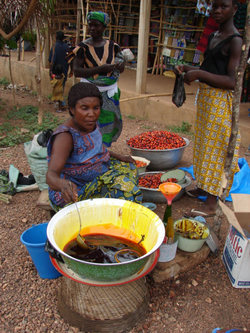Reuters | Wed May 25, 2011
KUALA LUMPUR (Reuters) -- Indonesia, the world's No.1 palm oil producer, signed into law a two-year freeze on new permits converting forests in plantations that may prompt palm oil firms to seek new ways to grow supply to meet rising demand from India and China.
Following are questions and answers on how the $30 billion dollar palm oil industry will deal with the ban:
IS LAND STILL AVAILABLE IN INDONESIA WITH THE BAN IN PLACE?
Yes, there is plenty of degraded and secondary forest in Indonesia. But since there is no fixed definition for degraded land, estimates range widely from six million to 76 million hectares, making it hard to pinpoint land availability.
Palm oil investors say the news of the moratorium will push up land prices in Kalimantan province on Borneo island by 20 to 30 percent on the perception of scarcer and more expensive land -- with costs seen at about $4,500-$7,000 per hectare depending on location and suitability for cultivation.
WILL THERE BE CONSOLIDATION IN THE PALM OIL SECTOR?
Probably. Palm oil firms may follow in the footsteps of Singapore's Wilma, the world's largest listed planter, which last year bought a strategic stake in Kenyan Agric to gain access to Kenyan's largely unplanted land bank in Indonesia.
An outright acquisition of a listed planter may be difficult. Valuations for Indonesian focused planters could be pushed up after the ban as shareholders inflate price tags for business and land, analysts say.
HOW ABOUT BUYING LAND IN AFRICA?
That appears to be the strategy for firms like Malaysia's Sime Darby, the No.1 planter in terms of land assets, Wilma and Singapore's Golden Agric Resources.
All these firms have inked deals to buy African palm oil firms or land concessions with governments over the past year, helping to fuel a land grab in the continent that coincides with Indonesia's plans for the forest clearing ban.
But getting African production up to par with Indonesia and Malaysia could take years as planters face issues related to labor, infrastructure, farming techniques and disputes over land rights with local communities.
($1 = 8537.500 Indonesian rupiah)
(Reporting by Niluksi Koswanage; Editing by Ed Lane and Simon Webb)














